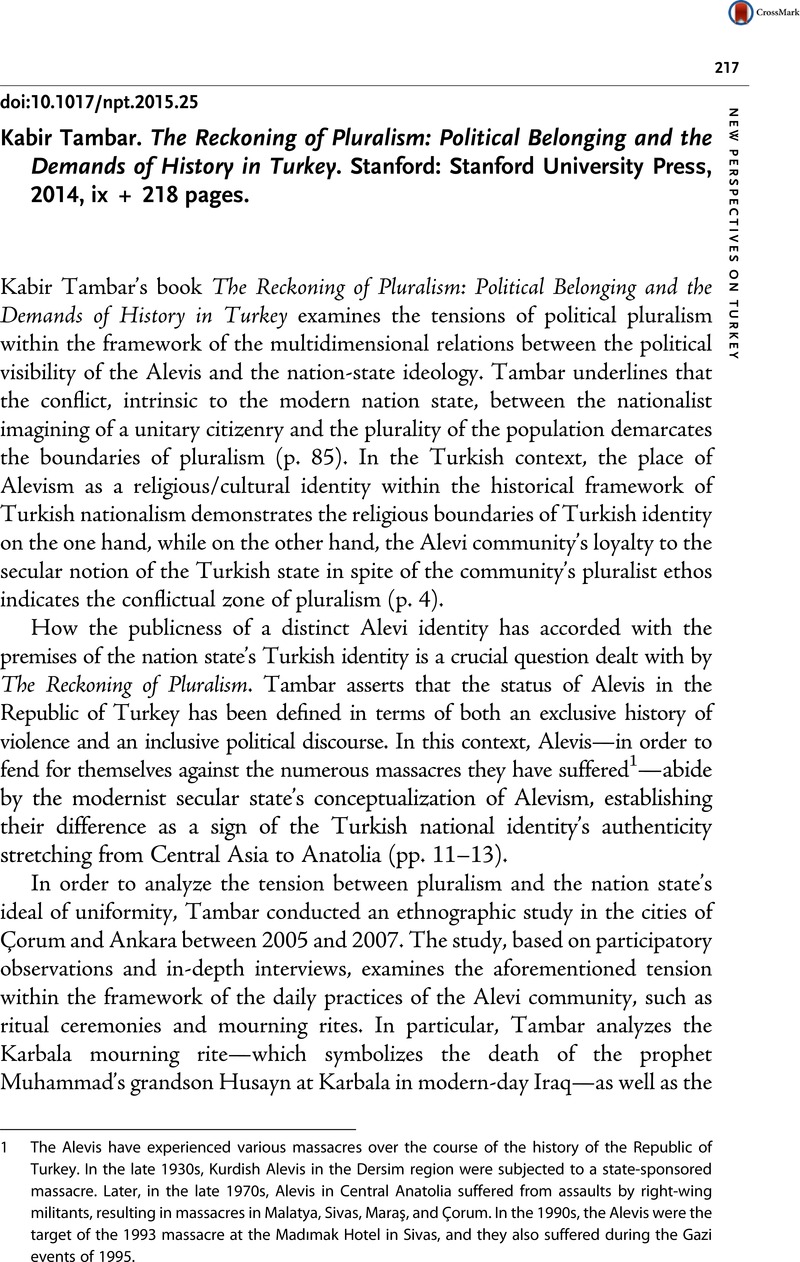No CrossRef data available.
Article contents
Kabir Tambar. The Reckoning of Pluralism: Political Belonging and the Demands of History in Turkey. Stanford: Stanford University Press, 2014, ix + 218 pages.
Published online by Cambridge University Press: 30 December 2015
Abstract

- Type
- Book Reviews
- Information
- Copyright
- © New Perspectives on Turkey and Cambridge University Press 2015
References
1 The Alevis have experienced various massacres over the course of the history of the Republic of Turkey. In the late 1930s, Kurdish Alevis in the Dersim region were subjected to a state-sponsored massacre. Later, in the late 1970s, Alevis in Central Anatolia suffered from assaults by right-wing militants, resulting in massacres in Malatya, Sivas, Maraş, and Çorum. In the 1990s, the Alevis were the target of the 1993 massacre at the Madımak Hotel in Sivas, and they also suffered during the Gazi events of 1995.
2 In 2009, the ruling Justice and Development Party (Adalet ve Kalkınma Partisi, AKP) initiated a dialogue process with the Alevis in order to reorganize the relations between Alevis and the state. In this context, seven workshops were organized with the participation of Alevi associations, NGOs, academicians, journalists, and theologians. Nevertheless, the questionable final report of this Alevi initiative fell well behind the demands of the involved Alevi associations.


